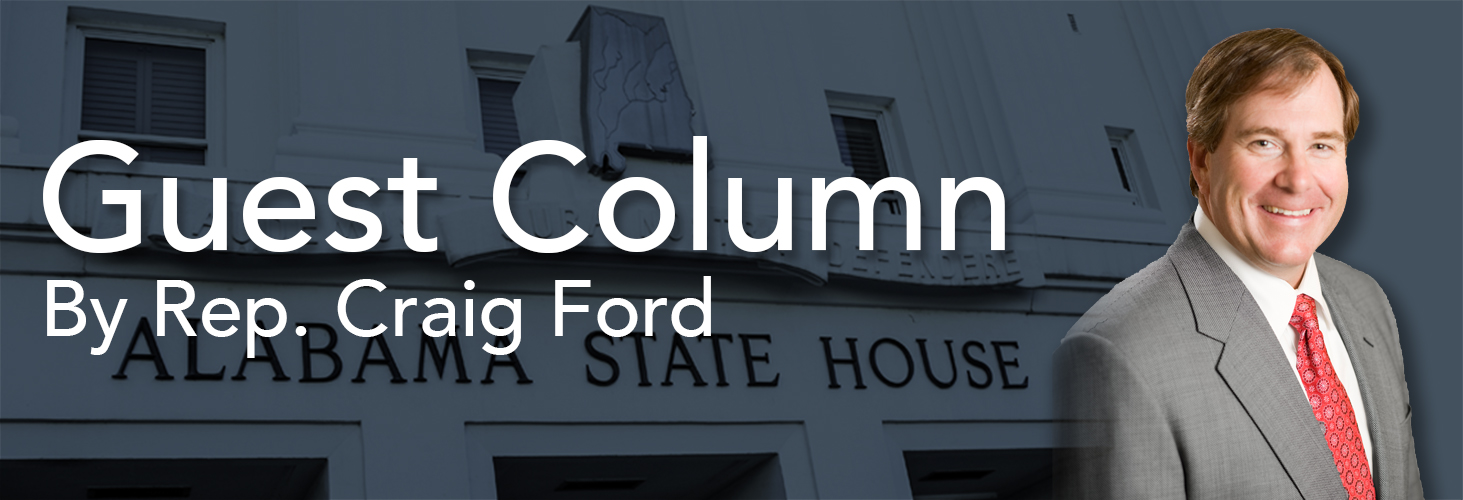By Minority Leader Rep. Craig Ford
Other than the $700 million hole in the state’s General Fund budget, no issue has been more talked about than the charter school bill.
Republicans in the Alabama legislature have made charter schools a part of their legislative agenda, and a priority in this legislative session (which is ironic, given these same Republican legislators campaigned on stopping President Obama’s agenda, but President Obama has been one of the strongest advocates for charter schools).
The charter school bill was passed out of the state senate last week, and will most likely be voted on in the state House of Representatives this week.
Because the Republicans hold a Supermajority (nearly 70 percent of legislators in the House of Representatives), they will certainly force this bill through, and it will be up to Gov. Bentley to decide whether to veto the bill.
There is no doubt that something needs to be done in some of our school systems. But charter schools are not the answer, and will not give our children the better quality of education that proponents of charter schools have claimed.
Researchers at Stanford University conducted two studies on charter schools, in which they reviewed test scores from charter schools in 26 states. The results they found undermine the argument that charter schools outperform existing public schools.
In all, only 25 percent of charter schools performed better than traditional public schools in reading, while only 29 percent performed better in math. More troubling is that 19 percent of charters performed worse in reading, while 31 percent performed “significantly worse” in math. The rest performed at the same level as the existing public schools.
So after about two decades of experimenting with charter schools, the test results have proven that charter schools are not likely to give our children a better quality education. In fact, there’s a pretty high chance that our children will get a lower quality education at a charter school than they would at the school they are already attending.
Charter schools also have a very real problem with fraud, waste and abuse of tax dollars.
The Center for Popular Democracy and Integrity In Education, both non-profit organizations, released a report that found more than $100 million in fraud, waste and abuse by fraudulent charter operators in just 15 of the 42 states that have charter schools.
Another report conducted by Integrity In Education found that, just in Pennsylvania, charter operators had fraudulently misused more than $30 million!
The authors of Alabama’s charter school bill have claimed their bill addresses the accountability issues. But it does not.
The charter school bill that came out of the Alabama Senate does not require that “Education Service Providers” be non-profit organizations. What this means is that, while the organization that applies for the charter might have to report to the state, the companies that it subcontracts to do not and have no accountability to the taxpayers.
The reason charter schools are hotbeds for fraud and waste is because the for-profit companies that provide education services, such as financial and operation management, managing the facilities and even designing the curriculum, are not held accountable.
In fact, in the reports I referenced earlier, government regulators were not the ones who have discovered the fraud in charter schools. The fraud was only discovered by an investigative reporter, or when a whistle blower came forward or someone filed a lawsuit.
The fraud has come in many forms, including charter operators using school funds illegally to buy personal luxuries for themselves and to support their other businesses.
Investigative reporters have also found that education service providers are typically non-compliant with request for information required by law under the Freedom of Information act. The Washington Post reported that, during their own investigation of charter schools, 70 percent of Education Management Organizations refused to respond to the request for a copy of their contract with Charter Operators, while another 10 percent claimed they were not legally required to publicly provide a copy of their contract.
So even if the Alabama legislature passes a provision requiring them to make their contracts and finances publicly available, 80 percent of these organizations have proven that they will ignore the law and refuse to provide the information.
The sad thing is these are not even all the arguments that can be made against charter schools. But these are more than enough to prove that charter schools are a scam, and a bad idea. Yes, something needs to be done in some school systems. But charter schools are not the answer.
Rep. Craig Ford is a Democrat from Gadsden and the Minority Leader in the Alabama House of Representatives.

















































